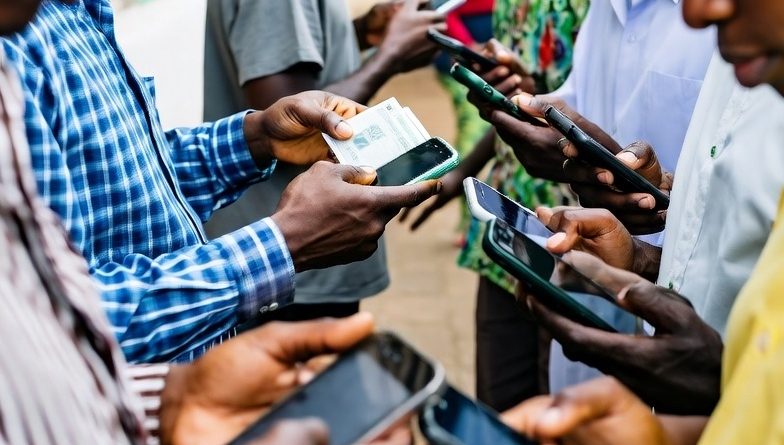Nigeria’s digital payment boom faces rising cybersecurity threats
Nigeria has, in recent years, become one of Africa’s digital payments powerhouses. Mobile banking apps, fintech platforms and USSD services have made financial transactions faster, easier, and more accessible to millions of people.
According to the Nigeria Inter-Bank Settlement System (NIBSS), electronic payments in the country touched N600 trillion in 2023, more than a half higher than the N387 trillion reported for the previous year – a staggering leap that reflects the scope of the penetration of digital finance in everyday life.
Yet, alongside this success lies an evolving crisis. Cybercriminals are exploiting weak systems, lax regulations and limited consumer awareness to perpetrate increasingly sophisticated fraud schemes.
Unlike in advanced economies, where strictly-enforced laws and advanced fraud detection systems protect users, Nigeria’s payment ecosystem remains far more vulnerable.
Left unchecked, the trend could undermine public confidence in digital payments and slow the country’s financial inclusion push.
The rise of digital payments in Nigeria
The boom in digital payments has been driven by several factors. Nigeria’s high mobile phone penetration means over 180 million users now have active mobile subscriptions, which makes it one of Africa’s largest mobile markets.
Under the current wave of fintech innovation, start-ups like Paystack, Flutterwave, OPay, and Kuda continue to build user-friendly platforms for payments, transfers, and merchant services.
There is also the convenience and ease that e-banking channels offer to account holders, which traditional banking hall experience, often perceived as stressful and slow, cannot afford. Those advantages mean mobile and internet banking now accounts for a significant share of financial transactions.
The Central Bank of Nigeria (CBN)’s cashless policy, which has reduced reliance on paper currency for everyday transactions, is also fuelling the digital banking boom.
This shift has transformed commerce, especially for small and medium enterprises, which can now receive payments digitally. It is also boosting financial inclusion, with millions of unbanked Nigerians accessing financial services for the first time through fintech platforms.
Those channels, fast and handy as they may be, are opening up banking services to vulnerabilities like cybercrimes.
Understanding the cybersecurity landscape
The cybersecurity environment in the Nigerian payments sector is complex. Common attack methods include phishing and social engineering. That includes scam emails and text messages, phone calls that trick users into sharing login credentials, SIM swap fraud, account takeover, insider collusion as well as malware and fake app attacks.
The NIBSS Annual Fraud Report showed that in 2023 alone, attempted fraud rose by 45 per cent, with mobile channels and online platforms being the most exploited modes. Losses were in billions of naira, and many cases were never reported to law enforcement.
Comparing regulatory frameworks: Nigeria vs advanced economies
The CBN issues guidelines on mobile banking, KYC requirements, and cashless policy, while the Nigeria Data Protection Regulation provides data protection rules.
However, compliance and enforcement remain weak. Many fintechs operate with minimal oversight. Fraud reporting systems are fragmented, and consumers often face difficulty recovering stolen funds.
Meanwhile, in the European Union, the Payment Services Directive 2 requires strong customer authentication (such as two-factor authentication) for online payments. The PCI-DSS standard governs card transaction security globally.
In the United States, financial institutions must report breaches and fraud attempts. Institutions also share intelligence through the FS-ISAC (Financial Services Information Sharing and Analysis Center).
In the UK, the Open Banking framework enforces data sharing under strict security standards.
While developed economies enforce strict rules with penalties for non-compliance, Nigeria’s regulatory environment is more reactive and less consistent.
The cost of weak cybersecurity in payments
The consequences of poor security in Nigeria’s digital payment space go beyond financial losses. They include erosion of consumer trust, reputational damage for fintech and banks, financial inclusion setbacks and broader economic risks.
By contrast, in developed markets, the high level of trust in digital platforms allows online payments to flourish, with e-commerce thriving on secure infrastructure.
In Nigeria, telecom-related fraud (such as SIM swaps) has caused repeated customer losses, with reports of millions stolen in coordinated attacks. The refund process for victims is often slow, if at all reimbursement happens.
In contrast, banks are required in the UK, for instance, under the Contingent Reimbursement Model (CRM) to refund customers who fall prey to authorised push payment fraud. This ensures accountability and restores trust.
Credit card fraud liability in the US is capped for consumers, with banks and merchants bearing responsibility. Nigeria’s lack of structured consumer protection leaves users bearing the brunt of fraud.
READ ALSO: Payment Gateways making business easier for Nigerians
Closing the Gaps
To strengthen its financial cybersecurity, Nigeria can learn from global practices. Enforcing multi-factor authentication is essential, which will require every bank and fintech to implement biometric or token-based authentication.
Adoption of AI for fraud detection will enable machine learning tools to spot suspicious activity in real time, reducing false positives while catching fraud.
Public awareness campaigns could help in educating consumers about phishing, SIM swap risks and fake apps.
It is imperative also to strengthen regulations by making the CBN enforce PCI-DSS compliance and expand fraud liability protections for customers.
Banks, fintech, and telcos should be encouraged to share intelligence like FS-ISAC does internationally. Also, law enforcement agencies must be better equipped to investigate and prosecute cybercrime cases.
Nigeria’s digital payment revolution is a remarkable achievement, but may continue to sit on a shaky ground, should cybersecurity continue to lag adoption. Fraud and cybercrime may undo years of progress if public trust is lost.
Outcomes from advanced economies show that the solution lies in a mix of strong regulation, advanced technology, and consumer education. If Nigeria embraces these strategies, digital payments can remain a growth engine.

